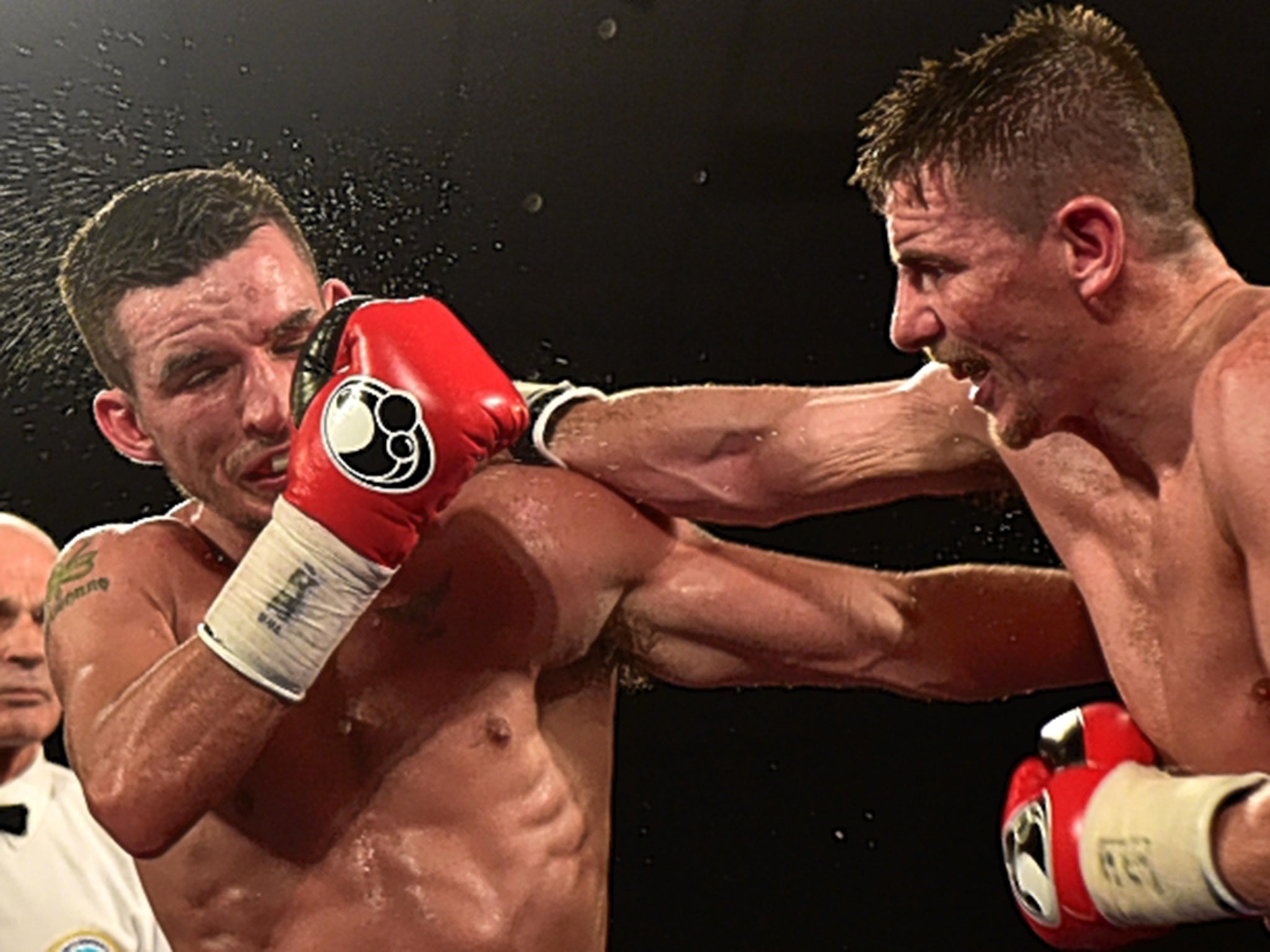Steve Bunce column: Peter McDonagh’s mind-bending renaissance has been one of the great stories of the last year
INSIDE BOXING: The Irish fighter recognised as one of the sport's greatest journeyman is now out for recognition.

Your support helps us to tell the story
From reproductive rights to climate change to Big Tech, The Independent is on the ground when the story is developing. Whether it's investigating the financials of Elon Musk's pro-Trump PAC or producing our latest documentary, 'The A Word', which shines a light on the American women fighting for reproductive rights, we know how important it is to parse out the facts from the messaging.
At such a critical moment in US history, we need reporters on the ground. Your donation allows us to keep sending journalists to speak to both sides of the story.
The Independent is trusted by Americans across the entire political spectrum. And unlike many other quality news outlets, we choose not to lock Americans out of our reporting and analysis with paywalls. We believe quality journalism should be available to everyone, paid for by those who can afford it.
Your support makes all the difference.In 2006 Uri Geller helped Peter McDonagh win the Irish lightweight title by sharpening the boxer’s mind, bending a few spoons at ringside in the process. Suspicions were raised when Michael Gomez turned his back in the sixth round and the fight was awarded to McDonagh.
The Boxing Union of Ireland investigated but found nothing untoward, and McDonagh was back at Dublin’s National Stadium in November fighting for the Irish welterweight title against his former friend, Dean Byrne, over 10 torrid rounds. The fight turned personal when Byrne, who boxed in Australia and Los Angeles but never lost his accent, started calling McDonagh a “plastic Paddy”.
McDonagh, now 38, was born in Ireland, raised in south London and during shifts in Bermondsey at the Fisher club, the Irish brogue faded. “He has taken a right liberty with that plastic Paddy stuff,” said McDonagh before winning the belt against Byrne and improving his record to 25 wins and 28 defeats.
“I call myself the Cinderella Man and other fighters that have suffered heavy losses are inspired by my story,” said McDonagh. “I’ve got the three Irish and the two Southern Area belts. I’m unbeaten in eight and I’m ready for the European title.”
McDonagh has operated on the fringes of the sport, a man available at a decent price to test an unbeaten fighter, often at late notice and on the road somewhere. He “won” a lot of the 28 fights he lost, and many times he moved, slid and fiddled to take unbeaten fighters the full distance and make them work for their pampered cash.
McDonagh has never stopped a prospect but he has exposed one or two convenient fantasies about the prospects that have beaten him. In the fights he was meant to lose and did, he slowly altered the thinking of the men he was facing, who were utterly confident in their beliefs. Each round followed a familiar pattern as McDonagh often dominated – without winning – and unbeaten prospects discovered what the pro game was really all about. However, in 2013 McDonagh stopped losing, stopped thinking like a loser and stopped fighting like a loser. He moved to the MGM gym in Marbella, got a new manager, a sponsor or two, changed his body shape and emerged as boxing’s most unlikely contender.
Geller is no longer involved but he would have been proud of the transformation and, having once watched from three feet as the aforementioned performer bent a spoon, I have to say that the late renaissance of McDonagh has been equally bewildering and impressive to witness.
“This business is not fair and it has never been fair,” said McDonagh. “I have beaten men that have gone on and won British titles. I have pushed contenders really hard and never got a shot at a bigger title. Anyway, that is different now because my face fits. I’m not the outsider any longer.”
McDonagh’s revival is well under way and he has now started taking names for this year that could see him get recognition in the trade for wins rather than praise as one of the sport’s finest journeymen. He wants to fight some of the men who beat him.
“Let’s see what happens when I get to train for two months, when I get the perks, when I don’t have to go to work each day and train at night. It is very different now, the Cinderella Man is here. It was me that came up with the quote: records are for DJs. That is the truth.”
He has twice lost six on the spin and since turning professional in 2002 he has never had a streak like his present run of eight fights without defeat, but he has managed just one stoppage in 10 years. When he says other boxers look at him for inspiration he is not joking – he is doing something that is not meant to happen.
“I want to keep going and get a big title and I’m ready now. The best British fighters are not interested in risking a fight with me,” added McDonagh, who fights again in Dublin in February when the MGM promote back at the National Stadium, which is the only purpose-built boxing venue in the world.
McDonagh has his three Irish titles, a series of nicknames and plenty to say for himself. Just don’t make the mistake of calling him a plastic Paddy. “I’m a proper Paddy, son, don’t worry about that.”
He is also one of the forgotten boxing tales of last year.
Join our commenting forum
Join thought-provoking conversations, follow other Independent readers and see their replies
Comments